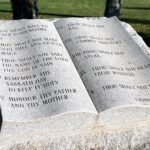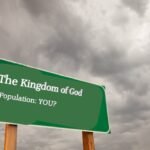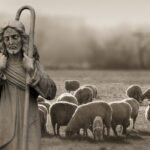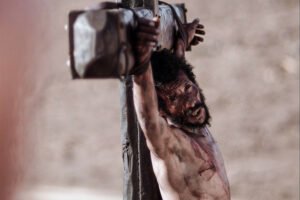By: Mike Wallace
Colossians 2:16-17” Let no man therefore judge you in meat, or in drink, or in respect of an holyday, or of the new moon, or of the sabbath days: Which are a shadow of things to come: but the body is of Christ.”
In no place in the preceding verse is the Sabbath day “done away with” as so many want to believe. To understand this verse, we must first look at context. Who was this written to? What kind of a society did they live in? It was written to the new Church of God in the pagan Greek city of Colossea. Colossea is recorded in history all the way back to at least the 500’s BC. It was a city populated by gentile pagans whose religion was known to be a fusion of Jewish, *Gnosticism and pagan beliefs. The people believed in an “angel cult” of a mixture of many beliefs. It was not a Jewish or Christian city yet it did have a small population of newly converted Christians who were most likely Gentiles. These new Christians came under extreme duress and pressure from the citizens of Colossea to continue to conform to the religion of the city. This is why Paul wrote to the new Christians- to stay the course as they had been taught.
Paul wrote to the church at Colossea and told them not to allow themselves to be judged for keeping what God had commanded to be kept by Christians: clean meats, the holy days, the new moon (not a holy day but used to keep the calendar in sync with God’s holy days), the Sabbath days (Notice Sabbath is plural, thus this includes the Holy days as written in Lev. 23.) Paul points out they are a shadow of future things to come. By keeping these days, we are preparing ourselves for the future Kingdom of God. The return of Jesus will usher in His Kingdom. See the one pager at www.cscog7.org “Kingdom of God- What it will be like. “
Paul uses the word “ordinances” in Col. 2:14 and 20. Some people believe these are used to bolster the doing away of the Sabbath Day. Two different Greek words are translated into the English word “ordinance”. Col 2:14 The Greek word is “dogma”, meaning decree or regulation. In Col. 2:20 The Greek word is “dogmatizo” meaning to submit to rule, regulation- subject to ordinances. The question becomes, which ordinances are done away with. Paul makes plain in Col. 2:21-22 that he is specifically discussing the “doctrines of men”. Col. 2:8 Paul says, “Beware lest any man spoil you through philosophy and vain deceit, after the tradition of men…” It was man’s rules that were done away with.
The context of Col. 2:16 is 1) keep God’s days and way of life and do not let men judge you for it. 2) Man’s ordinances are blotted out and only God’s law is important. We also see this in Mark 7:7-8 where Jesus Himself excoriates the Pharisees for keeping man’s laws by laying aside the “commandments of God”. The apostle John says “…we know him, if we keep his commandments. He that says I know him, and keeps not his commandments, is a liar and the truth is not in him”(I John 2:3-4). Paul and John would want to agree with Jesus. We should too.
The Colossian church was being judged for keeping the law of God, Sabbath days and clean and unclean meats. Today, 2000 years later many new converts to Christianity are criticized by their friends and family for no longer keeping the pagan days of Christmas and Easter. New converts are often derided for keeping the Sabbath day, clean and unclean meats and the Holy Days of God just like the Colossians of 2,000 years ago were.
*Gnostic, A belief in being saved by “knowledge”. There was no sin only ignorance. To be saved one must acquire vast knowledge.























